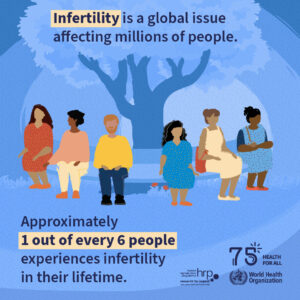
Due to the nature of IVF treatment, much of the focus often is on women and men can feel ignored despite being central to the process. We focus here on male reproduction and what men can do to put themselves in the best position for treatment.
According to the World Health Organisation, about 1 in 6 couples will experience difficulty having children. Of these about one third will be due to a male fertility issue, and more will be a combination of male and female issues.

To function correctly, the male reproductive system must produce sperm of sufficient numbers and quality and successfully transport these sperm out of the body so they can meet an egg. Outside a clinical setting, this happens during intercourse. In the clinic, there are a few different ways to support the egg and sperm meeting, ranging from intra-uterine insemination to IVF and ICSI. The best method for you depends on both partners.
The process of sperm production and transport can be disrupted by disease, injury or lifestyle and you may not even be aware there is an issue until you try to have a family. A first step in looking at male reproductive health is to do a semen analysis. This test requires a semen sample to be produced into a sample jar by masturbation. The lab then look at the semen to find sperm, and will provide a report detailing their number, how well they move and how they look. These numbers are compared to a standard for fertile men, as defined by the World Health Organization and can indicate if there is a problem. For some men producing the sample itself can be difficult. Don’t worry if you fall into this category, your doctor can help. Other tests that can provide useful information about male reproductive health look at hormone levels, genetics and a physical exam. Taken together, these results can indicate what treatment might help you.
While we can’t change our genetics, or what illnesses we suffer from, there are steps that can be taken to improve overall health, and this can have a positive impact on reproductive health. It is important to remember that sperm are being produced continuously, this means change can positively impact sperm parameters in a short space of time.
Some helpful steps include eating a balanced diet to maintain a healthy weight, try to be physically active and manage your stress. These steps are not always easy but there is a link to our “Helping your Fertility (male)” information leaflet below that will give you some tips and where to look for support to achieve positive change in your life. Some things to avoid when working on your reproductive health include, smoking, excess alcohol, and recreational drugs.
For more information: Helping your Fertility (male)

Even if steps to improve your general health don’t result in you conceiving without treatment, it will still result in healthier sperm being available for treatment which will improve your chances of having a baby.